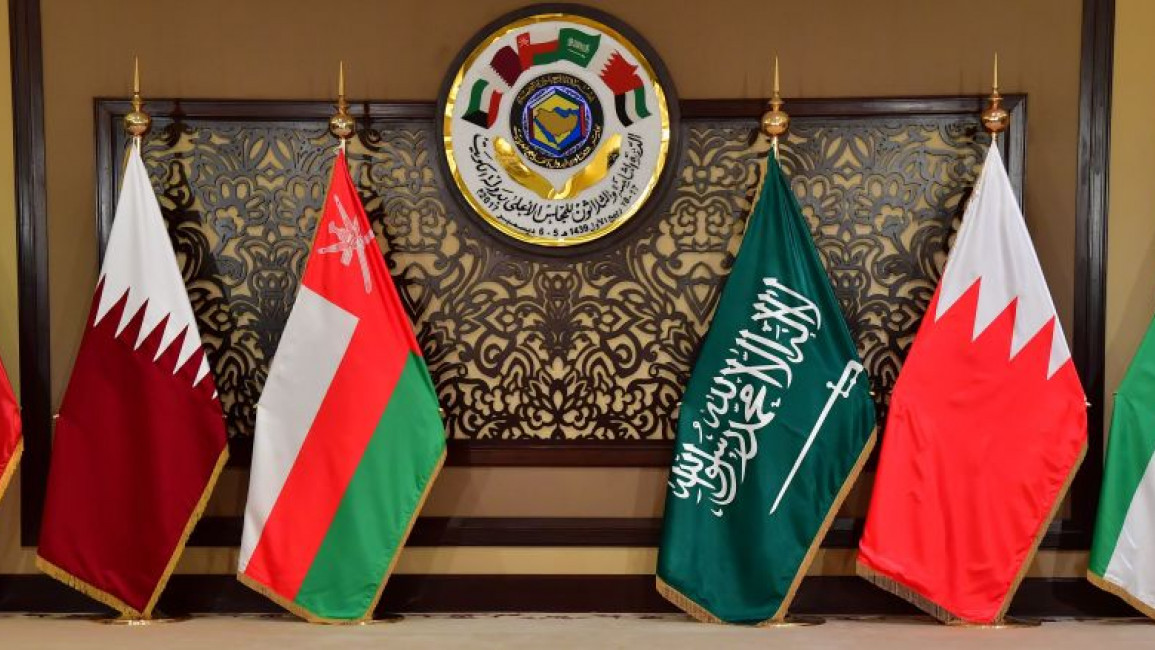Explainer: What is the new GCC 'Vision for Regional Security'?
The Gulf Cooperation Council (GCC) announced the launch of its 'Vision for Regional Security' last week, a new initiative formulated by the six-country bloc earlier in December.
Its launch has provoked questions about what the security plan entails and how it will be implemented, particularly with its formation coinciding with Israel's war on Gaza and a spate of attacks on regional Red Sea shipping.
Jasem Mohamed Albudaiwi, the Secretary General of the GCC, said that as well as being part of a coordination of policy outlined in the bloc's charter, the vision also presents a model for other regional states to aspire to.
"This vision is not merely plans and strategic objectives; it is a commitment among us to build a shared future characterized by security, peace and stability," Albudaiwi added.
But what are the points in this new vision, and why was it announced now? The New Arab takes a look.
What is the GCC?
The GCC is an economic and political bloc formed in 1981, in the face of regional conflict and tensions. It includes Kuwait, Qatar, Bahrain, Saudi Arabia, the UAE and Oman, six countries with huge oil resources and some of the highest per capita GDPs in the world.
Despite the agreement on greater economic and political integration there have been huge divergences on the goals of the GCC and differences on regional policy.
There has been a new push for greater cooperation after the blockade on Qatar by Saudi Arabia, the UAE, Egypt and Bahrain ended in 2021 with the Al-Ula Agreement.
What issues does the vision cover?
There are several topics that the vision covers, outlined in 15 specific points, such as issues relating to regional security and stability, economy and development, as well as climate change.
One such geopolitical challenge that the vision seeks to resolve is the issue of Israel's occupation of the Palestinian territories, reaffirming the GCC's commitment to the Arab Peace Initiative that was first endorsed by the Arab League in 2002, despite Bahrain and the UAE normalising relations with Israel.
The vision also calls for the end of Israeli settlements in the occupied West Bank and nots that the conflict is a key issue destabilising the region.
It also addresses nuclear non-proliferation in the region, a long-standing issue due to Iran's nuclear programme, as well as a commitment on the right to civil nuclear use, a policy which has been sought by both the UAE and Saudi Arabia. Iran also says that its nuclear programme is for civilian purposes but Gulf states suspect this could be cover for manufacturing an atomic bomb.
The vision also stresses the need to maintain maritime and waterway security, as well as combatting terrorism and its financing, and prevent weapons - including "ballistic missile technology and drone systems" - from reaching armed groups.
In particular, the vision demands "the criminalization of all groups carrying out terrorist acts, irrespective of their political or sectarian affiliation, or ties to state institutions".
Other points include addressing cyber security issues, global energy market stability, climate change and the advancement of implementing a 'circular carbon economy' and securing water security.
A result of Israel's war on Gaza?
Kristian Coates Ulrichsen, a Fellow at Rice University's Baker Institute, told The New Arab that the vision's announcement was timely given the turmoil in the region much of it due to Israel's ongoing war on Gaza.
He said it "offers an opportunity to build upon the healing of rifts that divided the GCC in the decade that followed the Arab Spring", referring to the blockade on Qatar by three of the bloc's members.
The vision also addressed joint concerns regarding regional "terrorism", securing maritime waterways, and the use of drones and ballistic missiles, three issues that have escalated since the start of the Gaza war.
This includes the Houthi's use of ballistic missiles and drones against international shipping in the Red Sea which has seen the deployment of a multi-national force led by the US to protect vessels, while the US and UK have conducted retaliatory airstrikes against the Houthis. Iran-linked militias in Iraq and Syria have also targeted US bases.
Part of wider shifts in international politics?
Giorgio Cafiero, CEO of Gulf State Analytics, a Washington, DC-based geopolitical risk consultancy, told The New Arab the vision reflects the Gulf states' ambitions in "promoting their visions for diplomacy, multilateral cooperation, and economic and energy stability".
Cafiero said the divide brought about by US-China tensions and the differing global responses to Russia's invasion of Ukraine, and Israel's war on Gaza, has seen "the GCC states embracing increasingly non-aligned and/or multi-aligned approaches to geopolitics".
Anna Jacobs, Senior Analyst on the Gulf states for International Crisis Group, told The New Arab that questions remain about what the vision would mean in practice, particularly with such divergent views and actions among members regarding the war on Gaza and conflict in Sudan.
"Despite the GCC's long history, Gulf Arab states still seem to prefer working bilaterally, rather than multilaterally, in international security efforts – which lead to them often working in silos and sometimes at odds with one another," she added.



